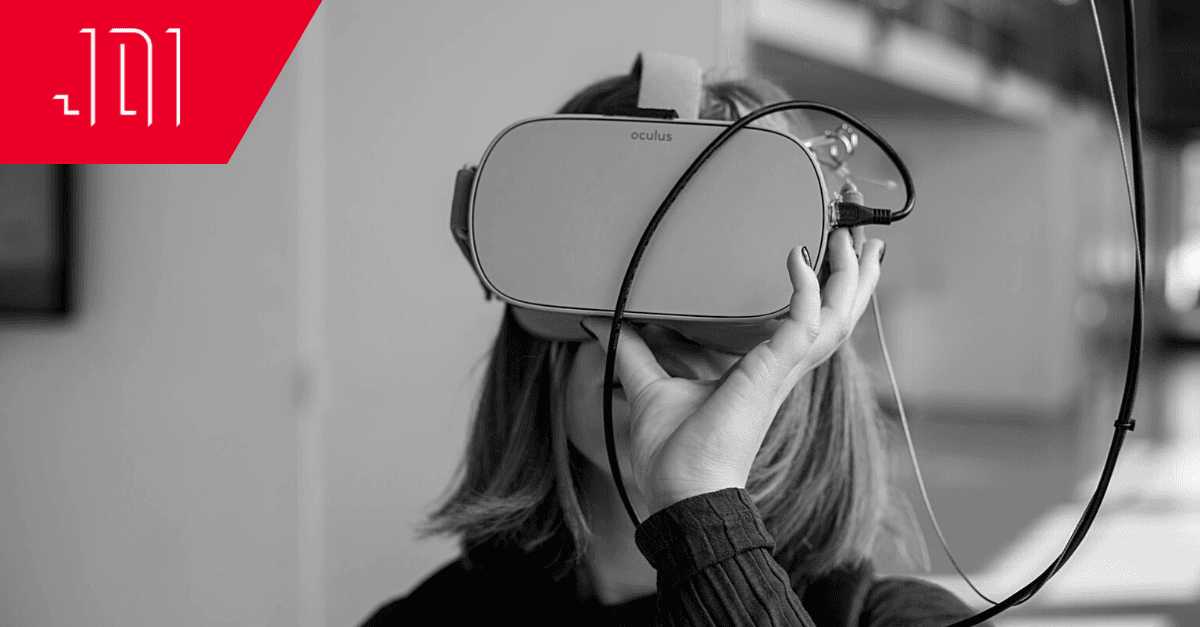The Explosion of Metaverse Data
Technology augments the world around us, it enhances our experience as humans, and the Metaverse will be no different. The line between reality and digital has been obscured, and the Metaverse seeks to make things a whole lot hazier. Consumers and merchants are adopting AR/VR at a staggering rate, with expectations of traveling to different virtual worlds, exploring, adventuring, and meeting new people. Advancements in motion capture, tracking, and biometrics are taking leaps, not small steps, paving the way for parallel virtual worlds to exist.
Much like the evolution of the internet revolutionized the advertising and marketing industry, the future of Metaverse marketing will be an ever-evolving roller coaster ride poised for rapid and continuous growth. Brands will have to reexamine their messaging to fit a collective, 3-dimensional, virtual shared space. When digital transformation occurs, they will need to be ready to reach consumers where they are spending time, while building a meaningful connection along the way.
The Metaverse will make everyone from consumers to brands worldbuilders. As this new digital universe exponentially expands into the mainstream, it will undoubtedly become one of the primary channels in the marketing mix. Metaverse advertising will signal a move beyond traditional advertising– quickly pivoting towards creating immersive brand experiences. This will give brands the ability to tell engaging and novel stories with more direct consumer contact. The possibilities are truly endless.
Even though experts agree that we are still many years away from the Metaverse as it is commonly envisioned, before it comes to fruition, we need to be more aware of the precipitous moment in which we currently stand.
What Metaverse marketing means for brands
The market is tempting for brands to enter: companies are diving into different types of virtual world platforms with dreams of being the next big thing. However, they are doing so without a clear strategy or goal. There is a wealth of data in XR, but blind action will not lead to actionable insights. Worse yet, they’re not asking what Metaverse data can do for them and instead are looking towards legacy channels for feedback and metrics.
Marketers will need to think as big as the designers of experiences: the potential for Metaverse data will cause an explosive increase in the number of collection points present in brand interactions. For instance, phygital marketing, the blending of digital experiences with physical ones, offer open-ended experiences that tie virtual and real-life experiences. Users will live in a world of immersive, experiential activations that go far beyond placing simple virtual billboards or engaging consumers in metacommunities with meta-influencers. The only boundaries or limitations a brand will face when it comes to Metaverse marketing is their collective imagination.
With the commercialization of the digital ecosystem that lies underneath the Metaverse, the multitude of high-quality, labeled data sources that require human processing and analysis will only be exacerbated. This new era will put more weight on data scientists to drive actionable insights that will provide year-over-year business growth. The Metaverse will combine a virtual parallel universe with real life. Simply put, it will have the ability to look at all types of data: from personal behavioral interests to health information.
Brands are foaming at the mouth to get access to it: where they will be able to hyper-personalize every targeted ad toward an audience of one. The Metaverse presents an unprecedented call upon marketers to level-up in raw creativity and data-driven strategy.
A Data Privacy Nightmare: Beware The Risks
Consumer privacy and how businesses store, collect, share, and use data is obviously a major issue. The majority of consumers consent to legally-binding terms of service or privacy policies on websites without reading them– a massive safety and privacy risk. In recent years, with the introduction of the General Data Protection Regulation (GDPR) from the European Union (EU), some restrictions have ensured that personal data collected from consumers can only be collected under strict and consented conditions. Comparatively, the United States lags far behind the EU with a patchwork of sector-specific laws that protect consumers’ data less strictly.
The death knell of third-party cookies and the passage of CCPA, ePR, and GDPR caused brands to frantically buzz about how it’s going to change their way of business. But why do these cookies get such a bad rep? Third-party cookies infringe on consumers’ privacy by companies selling people’s data on any number and nature of sites for profit to ad agencies and brands, often without their knowledge or consent, for the purpose of behavioral targeting.
We as citizen-consumers need to demand more security and privacy of our data for current practices and our future. As of now, there are currently relatively very few regulations that are designed to protect consumers’ privacy from the peering eyes of corporations. It is one thing to hand over your browsing data, but what happens when it is tied to your biometrics? Or when it includes physiological and eye-tracking data too?
The Metaverse is still just a concept, and the laws surrounding the trove of data collection and user privacy are non-existent. This leaves businesses wading in dangerous waters: do they self-govern, or do they grab what they can before regulations are handed down? Consumers are left guessing what is authentic or safe and what is paid placement or a scheme.
Hit Reset On Data Privacy In The Metaverse
It is time to say goodbye to third-party cookies and welcome in and leverage first and zero-party data. If not, companies will be fighting an uphill battle to develop and implement a data-driven household-level approach. First-party data is data collected directly from your audience, usually via CRM, while zero-party data is collected from consumers intentionally and proactively shared with a brand which can be done through surveys.
Google already announced in a blog post the end of third-party cookies in Chrome by the end of 2023– of course, that doesn’t quite mean they are giving up their control of data or done tracking you. It simply means as the market changes course, so too are they! The third-party ban surely will not hurt the search giant. In fact, it empowers them to continue to build up its Privacy Sandbox to no longer leverage invasive consumer cookies but track and target users to deliver interest-based targeting through Google topics.
Harvesting first and zero-party data will become immensely valuable to brands, enabling them to maximize and monetize. All while building a trustworthy foundation. Brands should not wait for third-party cookies to be fully obsolete. They have the opportunity to lay the foundation for their future without invading personal consumer space. Brands with their eyes on the horizon are developing safer, privacy-compliant digital tracking methods that benefit both themselves and consumers alike.
The Metaverse is a chance for a clean slate and a place for brands to build authentic and meaningful connections. Brands should provide a wide range of virtual opportunities that deliver interactive ad formats based on new audience behavior tracking capabilities. The time to start building a data-centric approach to the Metaverse is now. The brands that arm themselves with privacy-minded strategies will have an enormous advantage over competitors that wait to react to the inevitable regulations that come down the road.




